Friendship is such a powerful bond, and frankly, it’s underrated! If you’re looking to learn how to make friendships that last a lifetime, you’ve come to the right place!
Whatever your situation may be, whether you’re trying to make new friends or keep old ones, there’s something for you in this article.
With that said, these are largely my own thoughts, based on my own experiences. Make of it what you will, but my goal is to help you!
Furthermore, it’s totally natural that it’s intimidating! Making friends isn’t an easy topic to talk about, but we’ll go at it one step at a time.
By the end of this article, you’ll be well on your way to becoming a natural in creating and maintaining friendships. (Even if it seems hard to believe, you can do it!)
Alright, let’s get into it then!
This guide on making friends is split into a few different sections, please progress through them in order. Each part builds on to the last.
Before we get into the 4 individual steps, we’ve got to cover something important. It’s so important in fact, that you probably won’t get any benefit from this article without it!
The Key to Understanding How to Make Friendships: You
This might seem a little counterintuitive at first, but you’re the secret!
You see, making friends isn’t about how well you communicate with others, it’s about how well you communicate with yourself.
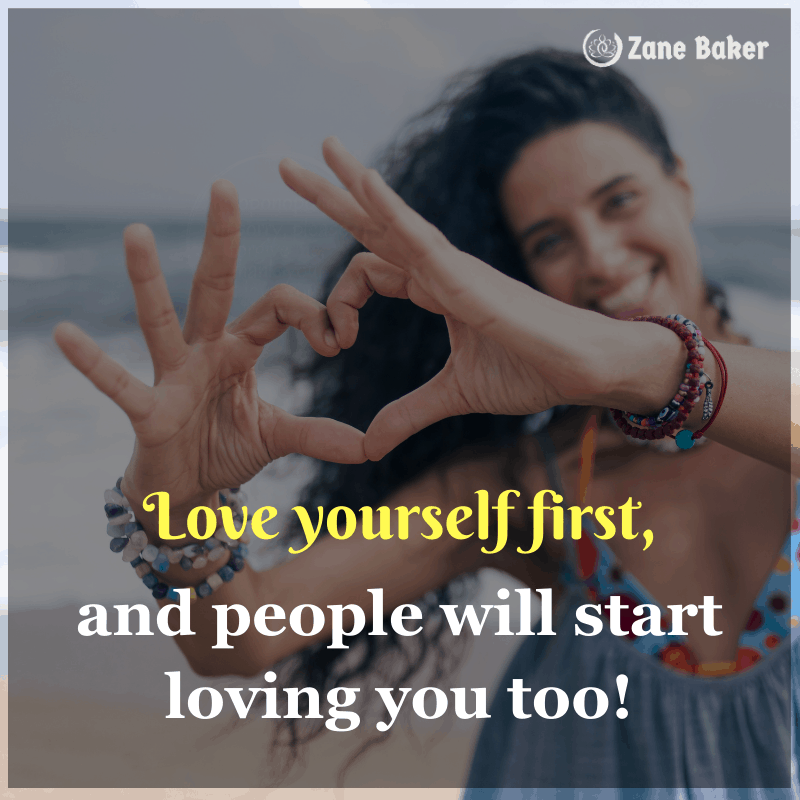
As a fellow human being myself, I can relate to the incessant jabbering that just tends to consistently pop up… at the worst moments.
Naturally, if you’re a person who gets nervous in social situations (as I used to be- seriously), you know the feeling all too well.
The truth is; to learn how to make friendships, like most other skills, you’ve got to have a conducive internal dialogue. I mean, how effective would a practicing pianist be if all day they’d just think “I just can’t play the piano right…” See what I mean?
It’s the same exact situation with making friends! If you tell yourself “What if I make a fool of myself? What if this or that goes wrong?” What you’re really doing is akin to involuntary self-sabotage.
The Worst Part? It’s So Totally Normal
Think about it- it’s literally in our culture!
We’re often told to “fit in,” right? On the surface, this isn’t a bad idea, but deep down, it ingrains a deep-seated fear. A fear to stand out.
In my honest opinion, this is a real societal tragedy.
Not only are people afraid of building new friendships, but they might even suppress their own inner aptitudes and talents!
I wonder how many wonderful gifts the world’s missed out on because people were afraid to “stand out…”
I can tell you this though- when people weren’t afraid to stand out (and potentially fail), we got airplanes and Disney, just to name a few.
Of course, the flip-side is that you will inevitably have to risk making a fool of yourself. My goal in this article isn’t to lie to you and tell you there’s no risk… My goal is to make you accept the risk, and be courageous!
“Making friends isn’t about how well you communicate with others, it’s about how well you communicate with yourself.”
Let me be straight with you from the get-go: There’s no shortcut, just like any major change or success in life.
If you want to learn to make long-lasting friendships, you’ve got to commit to it!
On the bright side, all you’ve really got to do is change your internal dialogue.
You Have to Change Your Internal Dialogue!
In order to build a stronger basket of social skills, as we’ve established, you’ve got to get your internal dialogue in check.
This is that nagging voice in your head, you know?
It’s always there, sometimes you don’t notice it, but other times it’s all you notice…
First of all, that little voice, what we could call the “mind,” is actually on your side!
It might not seem so right away, but we’ve evolved over millions of years to have that specific nagging voice in our heads. “Why?” -you might ask, well, because it helped us survive.
Believe it or not, you can actually “teach” that voice to to be pretty positive!
In the distant past, that voice was likely much more aligned with where it ought to be now. I.e: It had a positive impact on our self-image, especially when it came to forging new friendships.
It makes sense! Think about it- humans, on their own, tend to be much weaker than, say, a Sabre-toothed Tiger or a Mammoth, right?
The reason we came out on top was specifically that we learned to make friends. We created communities, cared for, and defended each other.
Making Friends Is Literally in Our DNA
Unfortunately, these days we’re often subject to negativity growing up. This “trains” our minds to be much less centered on making new friends, and much more on not ruining our own self-image.
With all that said, we can’t blame the people that raised us most of the time.
After all, they only did what they thought was best, right?
In their perspective, teaching us to fit in would help us make new friends.
Instead, however, I believe it instilled fear in our hearts. Fear that, although great, can be conquered.
“Unfortunately, these days we’re often subject to negativity growing up. This “trains” our minds to be much less centered on making new friends, and much more on not ruining our own self-image.”
The gist of it all is that in order to learn to make lasting friendships, you’ve got to rearrange your internal dialogue. On top of that, keep in mind that your inner thoughts aren’t inherently against you! All you have to do is teach them to act how they ought to act!
Alright, knowing your thoughts can be on your side, let’s get on to the 4 steps you need to follow to build long-lasting friendships!
4 Steps You NEED to Follow to Build Long-Lasting Friendships
1. Start a Mindfulness Practice!
You’re probably tired of me repeating this by now, but I cannot emphasize it enough: You’re the key! We, as humans, already have absolutely everything we need to go out there and make great friends. Of course, the only issue is, you guessed it, our internal dialogue.

So instead of “How do I make friendships?” We’ve got to ask: “How do I change my internal dialogue?”
Now before we get into the thick of it all- I’m going to be clear with you:
There’s no “switch” you flick that suddenly turns you into this magical, magnetic being. It takes work, and it takes time. We all have our moments of sadness or vulnerability, it’s part of being human!
With that said, implementing this first step will bring you a whole lot closer towards forging long-lasting, wonderful friendships.
So, how do we really change our internal dialogue? How does one regain control of their mind? Let’s talk about that.
How to Control Your Mind to Help You Build Friendships
This section might be a little misleading at first, so let me clarify something pretty important.
You can’t control your mind at 100%, 100% of the time. It’s just not something that’s normally possible. With that said, you’re probably asking yourself: “Peter, what about mindfulness? isn’t that the goal!?”
Well, believe it or not, mindfulness practice (which is amazingly beneficial by the way!) isn’t supposed to help you control your mind at 100%. Instead, the real goal is to teach you to allow your thoughts to flow.
This is very relevant towards learning how to make friendships!
Let me elaborate on this a little further…
The mind’s “noise” sort of feeds on our “paying attention” to it. In other words, as we pay attention to our fears, they only get louder.
Mindfulness has the wonderful goal of teaching us to live with our fears.
The beautiful thing is that by learning to live with our fears, they inherently quiet down.
So we’ve established that in order to make and maintain friendships, we’ve got to learn to live with our minds.
In doing so, the fears naturally begin to quiet down.
The beautiful thing is that by learning to live with our fears, they inherently quiet down.
The question is, how? How do we learn to live with our mind’s incessant chatter?
It’s not as difficult as you think!
Honestly, there isn’t too much to learning to cope with our mind’s “noise.”
That’s not to say it doesn’t require any commitment or it’s easy.
Practicing mindfulness does require dedication and patience… But it absolutely pays off!
Mindfulness is mainly cultivated through meditation and the implementation of conducive daily rituals, like…
Gratitude Practice!
A great start would be Zane’s Grateful Morning meditation, it combines both meditation and gratitude! I recommend listening to it (you guessed it) every morning, it’s only a few minutes and it’ll do you a lot of good.
The reason I so highly recommend implementing gratitude practice into your daily life is twofold:
- It doesn’t take a lot of time!
- It helps put things into perspective.
First of all, it not taking lots of time means it’s easy to get started! However, I want you to focus a little more on the second aspect… The fact that it puts things into perspective. This is really important!
By putting things into perspective, gratitude accomplishes something really special: It helps us realize how much we already have. This wonderful song by Nina Simone really fits here (give it a listen, you’ll like it)!
You see, in helping us appreciate what we already have, some things become less dramatic. Saying hello to a stranger doesn’t become too much of a big deal! After all… No matter what happens, you’ve got you!
Now don’t get me wrong- I’m not downplaying how difficult it can be to get out of our comfort zone.
What I am doing is showing you how much of an impact practicing mindfulness can do!
So, make sure you pick up Zane’s Grateful Morning meditation and put it to use!
Alright, that covers the first step; developing mindfulness.
Now, this obviously takes time, but each and every meditation session brings you that much closer to your goal. A word of warning though- your task isn’t done quite yet! There’s something that could potentially slow your progress down substantially, and that brings me to the second step…
Step 2. Be Understanding With Yourself
So you’ve decided to take up a daily meditation practice, awesome!
But, of course, there’s more to it. Although I really think anyone can greatly benefit from mindfulness practice, there’s some prep work involved.
Maybe it’s just me, but developing mindfulness can actually be unexpectedly frustrating.
I wager this is because we tend to set ourselves up with strict, unreasonable expectations about our progress.
This, unfortunately, is pretty much shooting ourselves in the foot!
When it comes to learning how to make new friendships, you’ve got to be understanding with yourself.
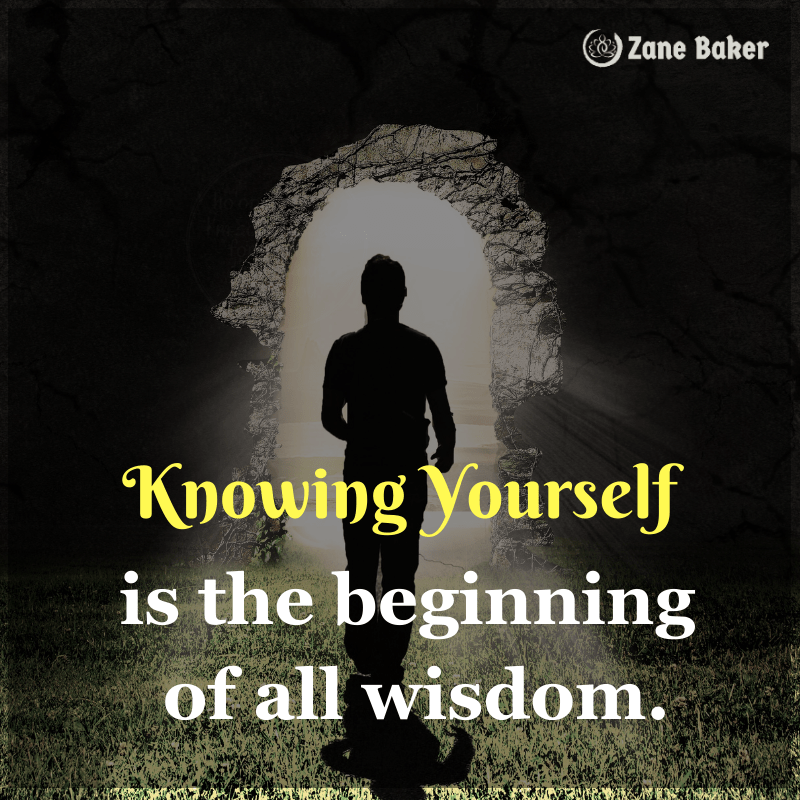
Give yourself the time you need to build a degree of confidence through mindfulness and the other steps in this article!
You, just like the rest of us, are a human being; that comes with its drawbacks.
However, don’t get me wrong here, committing to these steps absolutely pays off!
Now, my recommendation to you is really just to give yourself time.
You want to make new friends, and that’s great!
The fact that you’re reading this very article means you’re on the right track, so cut yourself some slack. As long as you put these steps into action and remain conscious about your internal dialogue, this’ll work great!
How You Can Learn to Understand Yourself
In order to learn this, you’ve got to give yourself time to improve. Great things generally don’t happen overnight.
So, be patient in your meditation practice, it’s normal not to feel like a totally “changed person” after a session of meditation. (You’ll probably feel refreshed though!) In the long run, though, have faith that you’ll see results!
Oh! I did neglect to mention one thing though… Learning to understand yourself becomes easier and easier as you develop mindfulness.
This is great, since developing mindfulness is easier and easier as you learn to understand yourself!
Together, steps 1 and 2 form a wonderful virtuous cycle.
Lastly, love and accept yourself; thoughts, emotions, fears, mood swings and all. It really pays off. Then, just set expectations knowing everything we covered in step 2 and you’re golden.
Now we’ve covered mindfulness and being understanding, next is something different! Step 3 really relates more to how we see other people, instead of how we see ourselves. Let’s get to it!
Step 3. Have an Open Mind to New People
So we’ve established the inner circle of how to make friendships; developing mindfulness and understanding with yourself. Now, all steps in this article can be acted upon simultaneously, but keep this in mind:
It’s really important to start with yourself, then expand your scope outwards.
I highly recommend taking it easy. This is a marathon, not a race, so give yourself time to develop mindfulness!
After a while, I believe that becoming more outspoken, confident, and social will come naturally. To learn how to make friendships, it’s important to first forge a strong friendship with yourself!
So, now that you know it starts with you, you’re probably wondering what to do next. Although I wager that confidence (which is super important) will come naturally through mindfulness practice, there’s still lots to do!
The first “external” step towards your goal of learning how to make friends is the equivalent of applying step 2 to other people. In my honest opinion, people are much more “like us” than we think! On top of that, people make mistakes.
The point is that we have to be understanding with others, just as we are with ourselves.
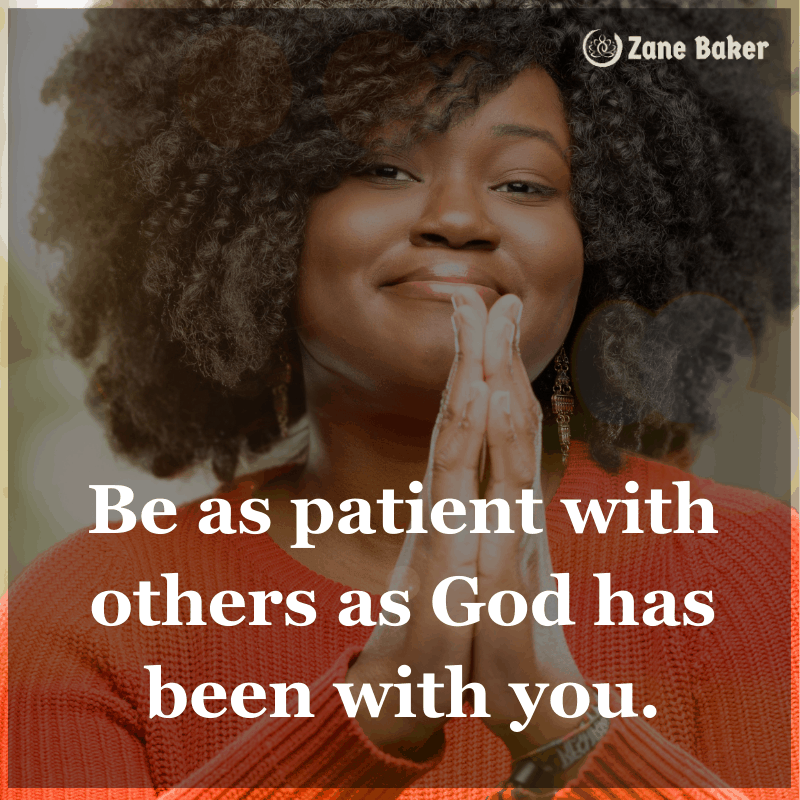
Personally, I’m a firm believer that everyone has their own inner struggles.
Because of this, it’s counterintuitive to judge people!
I tell myself: “You don’t know the full story, so it wouldn’t be fair to judge.”
In a nutshell, whether you’re religious or not, I recommend you stick to the golden rule:
“do unto others as you would have them do unto you”
Matthew 7:12
There’s an insightful little YouTube video that sort of relates to this featuring Chris Hadfield. If you want the full interview, check it out here!
Another point that’s important to keep in mind is that, although technology has is flaws, it’s pretty great!
Now more than ever (especially right now, during the 2020 Covid-19 pandemic) people are distant from each other.
Despite the fact that technology is often blamed for reducing social interaction, (Again, except during the pandemic, it’s the best we’ve got! Technology has its upsides.) I firmly believe that to forge strong bonds with people, you don’t always have to put the phone down… Let me elaborate.
Technology and Friendships
Technology, in my opinion, is often misunderstood.
When it comes to social interaction, context is key. If you’re on your own and don’t have your hands full, there’s no harm in sending a friend a message!
Technology Is an Asset, but You’ve Got to Use It Wisely
In scenarios where you join a club or meetup based on a common interest, it’s probably best to put the phone down.
From personal experience, with just a little mindfulness, making new friends becomes much more natural… As long as the phone is put away!
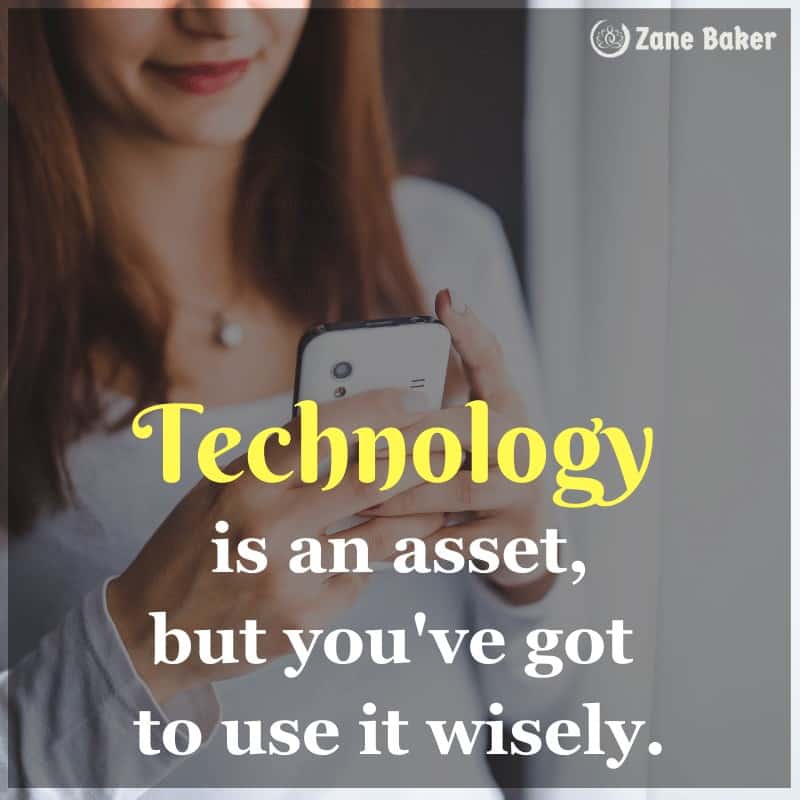
Unfortunately, technology can be a pretty heavy distraction. It’s not as hard as you think to put the phone down, though!
All you really have to do is be understanding with yourself, and be conscious about your phone usage.
In doing so, you’ll naturally realize how long you’re spending on the phone, and simply dial it down! There are also a few applications that detect your screen time and offer you insights and data.
It’s crazy how much time we can spend in front of a little screen! Not to mention, you could be straining your eyes.
On the flip side of the coin, technology can be a wonderful tool to meet new, like-minded and kind people!
Personally, I’ve met some of my best friends and a ton of great people online! There’s definitely something to be said for spending your online time wisely. After all, there are loads of great forums and communities for pretty much every interest imaginable, if you can’t find one, create one!
So, overall, keep in mind that technology can really deeply benefit you. Keep an open mind to meeting new people both in-person and online!
You never know who you’ll meet. As long as you stay true and understanding to yourself and others, I think you’re well on your way to forging great friendships.
Now, on to the final step, now we’re digging deep into the details!
4. Keep Context in Mind and Listen in Order to Forge New Friendships
When it comes to learning how to make long-lasting friendships, you’ve got to keep context in mind. This step really shifts the focus away from your internal dialogue to your interactions with others.
Now, one thing to note though, it’s important to follow step 3 and have an open mind with others. This step really expands on the previous, so make sure to keep that in mind!
Alright, context is an interesting topic to talk about when it comes to social interaction, there’s a lot to it!
First of all, let me clarify what I mean when I mention “context” in this article; context is the external situation you find yourself in.
Though you can choose to interact with people in a certain context, you can’t change the context itself. Does that make sense? Let’s dig deeper!
To start off our discussion about context, let me reiterate that context is super relevant when learning to make friendships.
As a matter of fact, context is, in my opinion, largely the defining factor of “what” you’re going to say in a given situation.
Picture This Entire Article as Split Into Two Sections:
- Mindfulness and being understanding with yourself builds your confidence and self-love. This is the Inner.
- Being open-minded and learning how and what to say in context applies your Inner to an external, social situation. This is the Outer.
If this doesn’t come off as intuitive at first, that’s okay!
Once you get through developing some of the “inner” skills, I think it’ll make a whole lot of sense. Properly “reading” the context is what makes you “social.” On that note, let’s explain exactly that!
How to Read Context in Social Situations
Now before I explain this in detail, remember that I am absolutely not telling you to “fake” your personality.
Instead, the goal is to apply your personality to the context and figure out what input you can give! After all, conversations are all about adding your own “flare,” right?
Firstly, reading a social situation’s context is all about figuring out what’s relevant. In other words, ask yourself: “Would you say the same things meeting people for the first time at a cocktail party and a bar?” Probably not, and with good reason!
One caveat though- this applies less and less the closer you are to someone.
A best friend is someone you can always speak your mind to, regardless of context. Although this section applies more towards making new friendships, it’s important to keep in mind for all social situations!
But, you’re probably wondering, how? How do I figure out what’s relevant?
To answer that question, let’s figure out the one thing great communicators, without fail, always do…
The Technique ALL Great Communicators Use
It’s simpler than you think. The key is to listen. The greatest communicators listen attentively. Make no mistake, this is a skill. Like other skills, it requires practice, but the dividends it pays are absolutely out of this world.
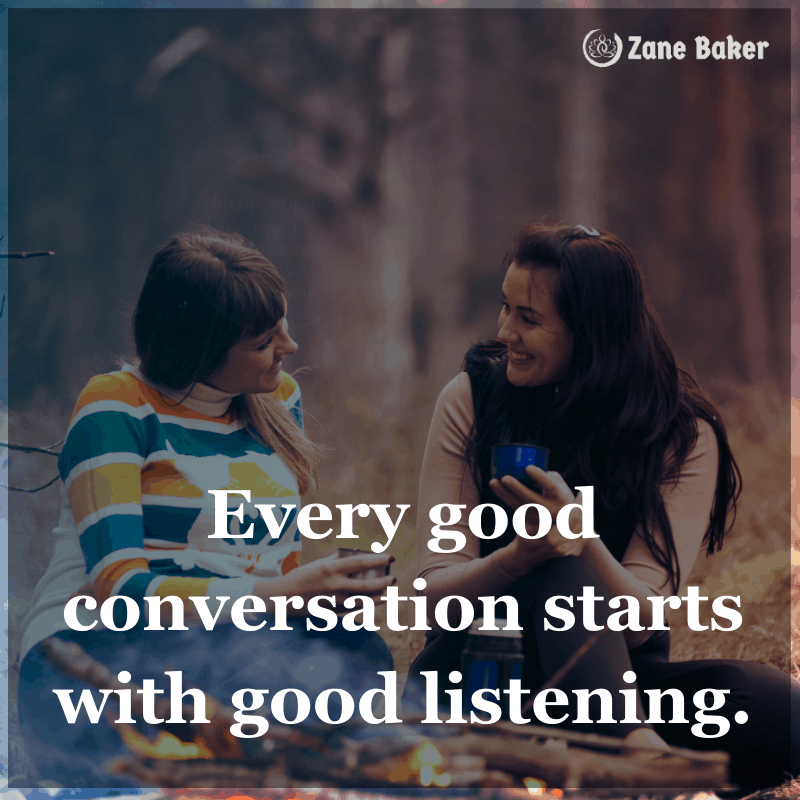
I highly recommend getting your hands on Dale Carnegie’s “How to Win Friends and Influence People.” (If you’d like the book, buying through my link is much appreciated, and costs you nothing extra!)
There’s a great summary over on Wikipedia. In that book, Carnegie iterates and reiterates the importance of becoming genuinely interested in people. Really, the book’s a detailed guide on “how to listen to other people.”
It could not be more important, especially when it comes to making friendships.
Listening attentively, by being genuinely interested in people, is the tool that will allow you to interact with others in almost any context.
It really means something when you positively comment on what someone else mentioned. This projects that you’re actively listening, and believe me, we all love being listened to!
One thing to keep in mind before we wrap up though, keep your interactions positive! I know I already mentioned following the golden rule, but it gets really easy to criticize people and start arguments when you listen. This leads me to my final, closing point:
It’s Okay to Be Quiet!
Believe me, if you have nothing to say, even after following all these 4 steps, I recommend just not saying anything!
Ask yourself if you’re in the right context. Are you mixing with the right crowd? And are you aligned with the topics of conversation?
Another point I want to get across before I let you go is that some things are out of your control… And this is absolutely okay!
You will make mistakes, you’re a human being, and that’s wonderful.
Mistakes help you learn! My only recommendation is to always own up to your mistakes. This is a point mentioned in Dale Carnegie’s book (mentioned above) for a reason.
Don’t let mistakes bog you down. I’d recommend checking out my post about trusting that things will work out, too! Like everything else in life, learning how to make friendships is not an easy task… But in time, you won’t believe the person you grow into!
I just know you’ll be blown away.
Peter
P.S. Make sure to pick up Zane’s Grateful Morning meditation, it’s totally free and can really help you develop mindfulness!
P.P.S. Sharing is caring, please spread the word! Pin to Pinterest using the image below:
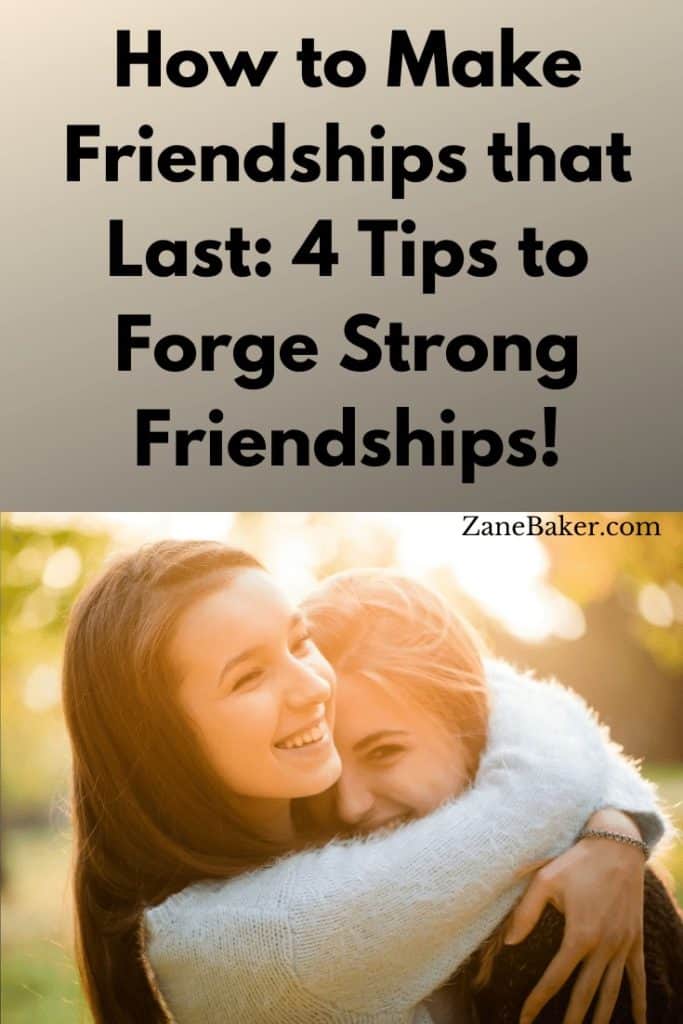

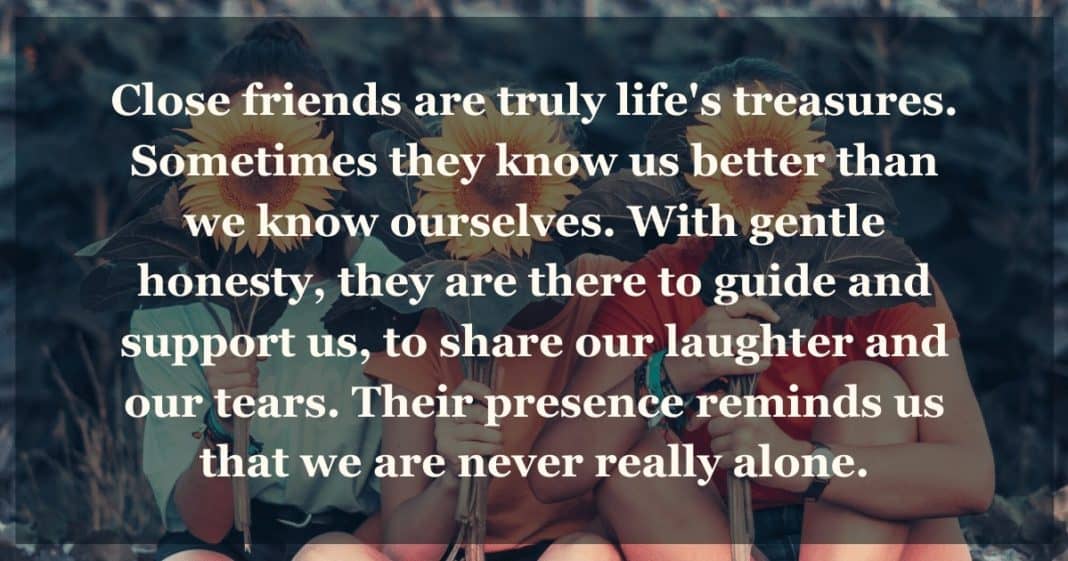
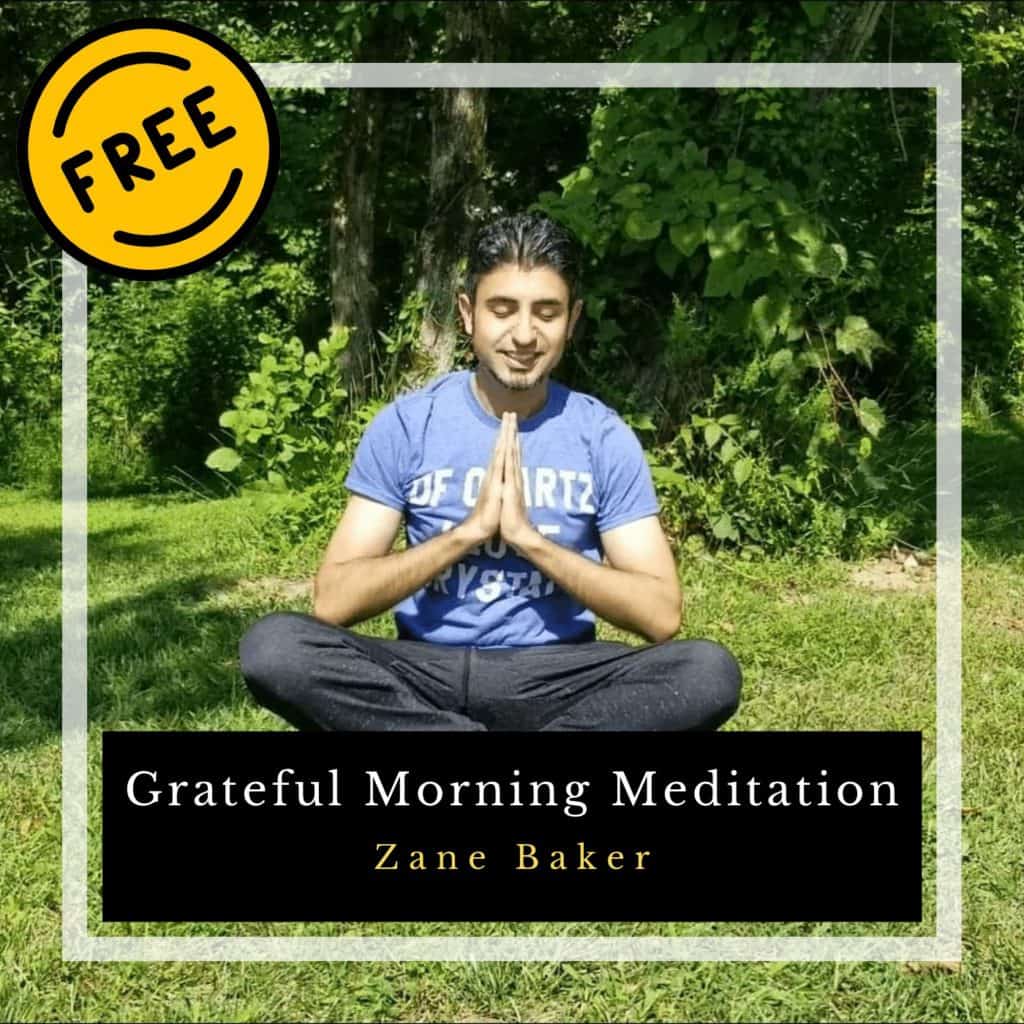

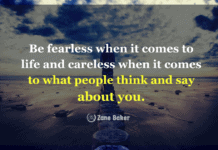








Facebook Comments